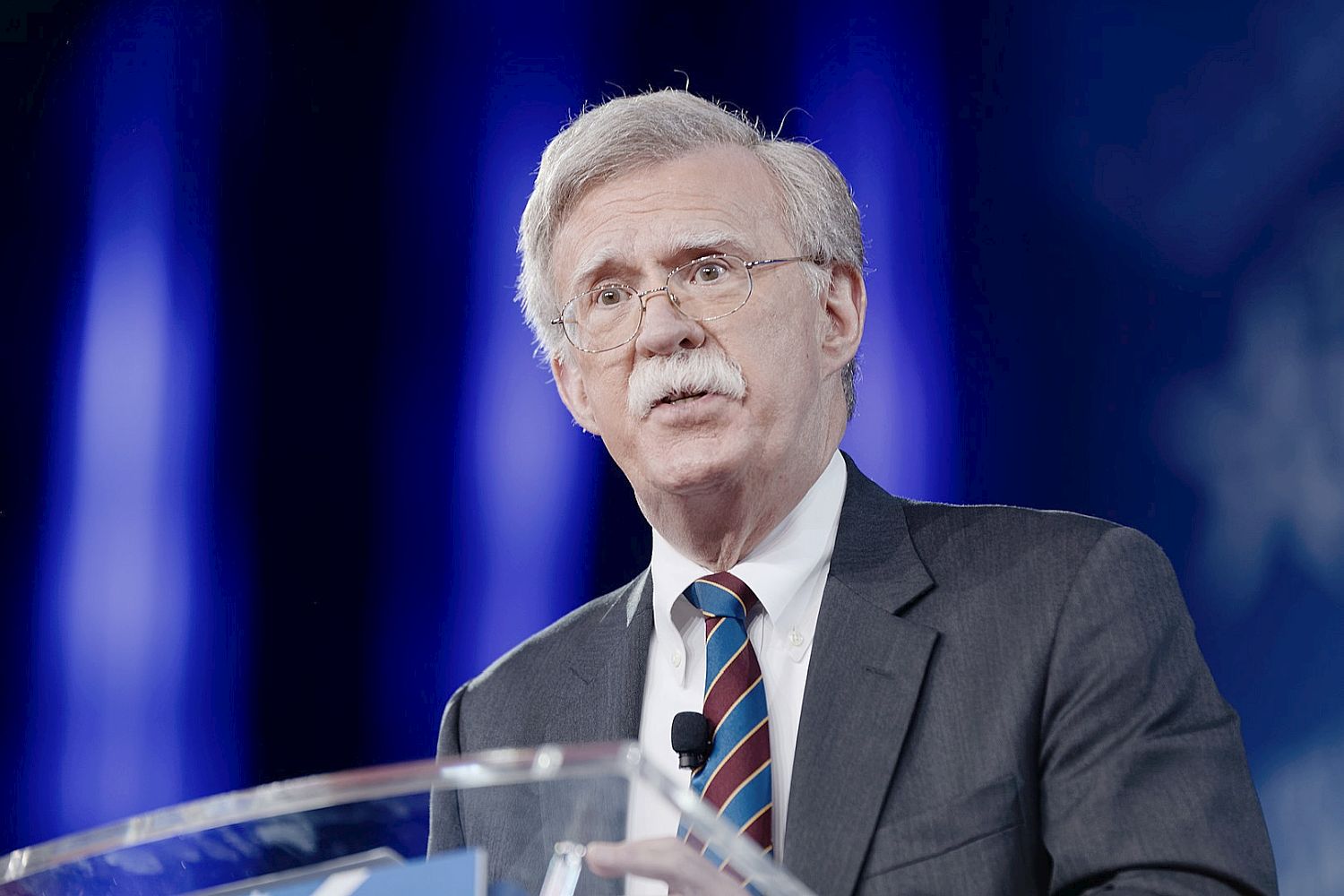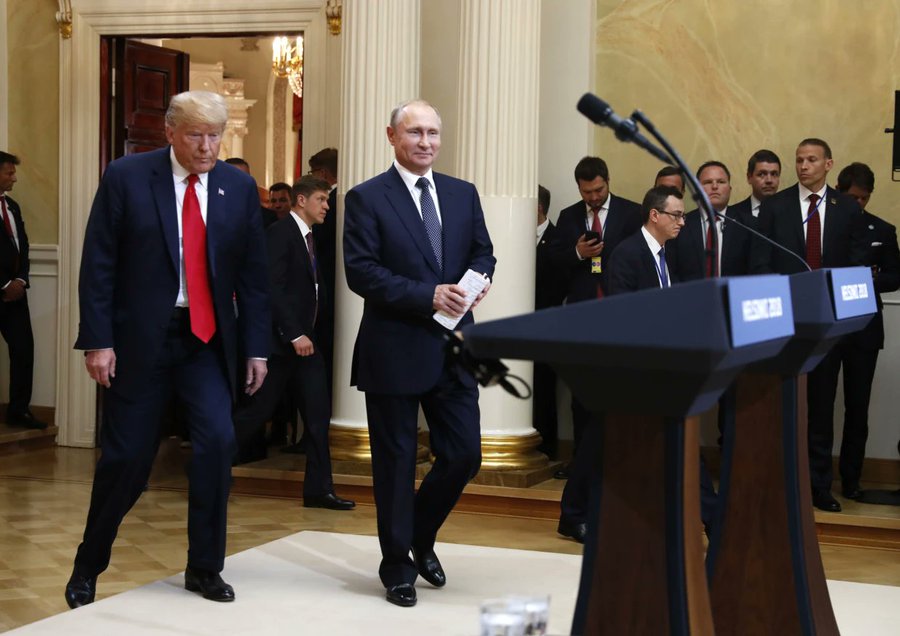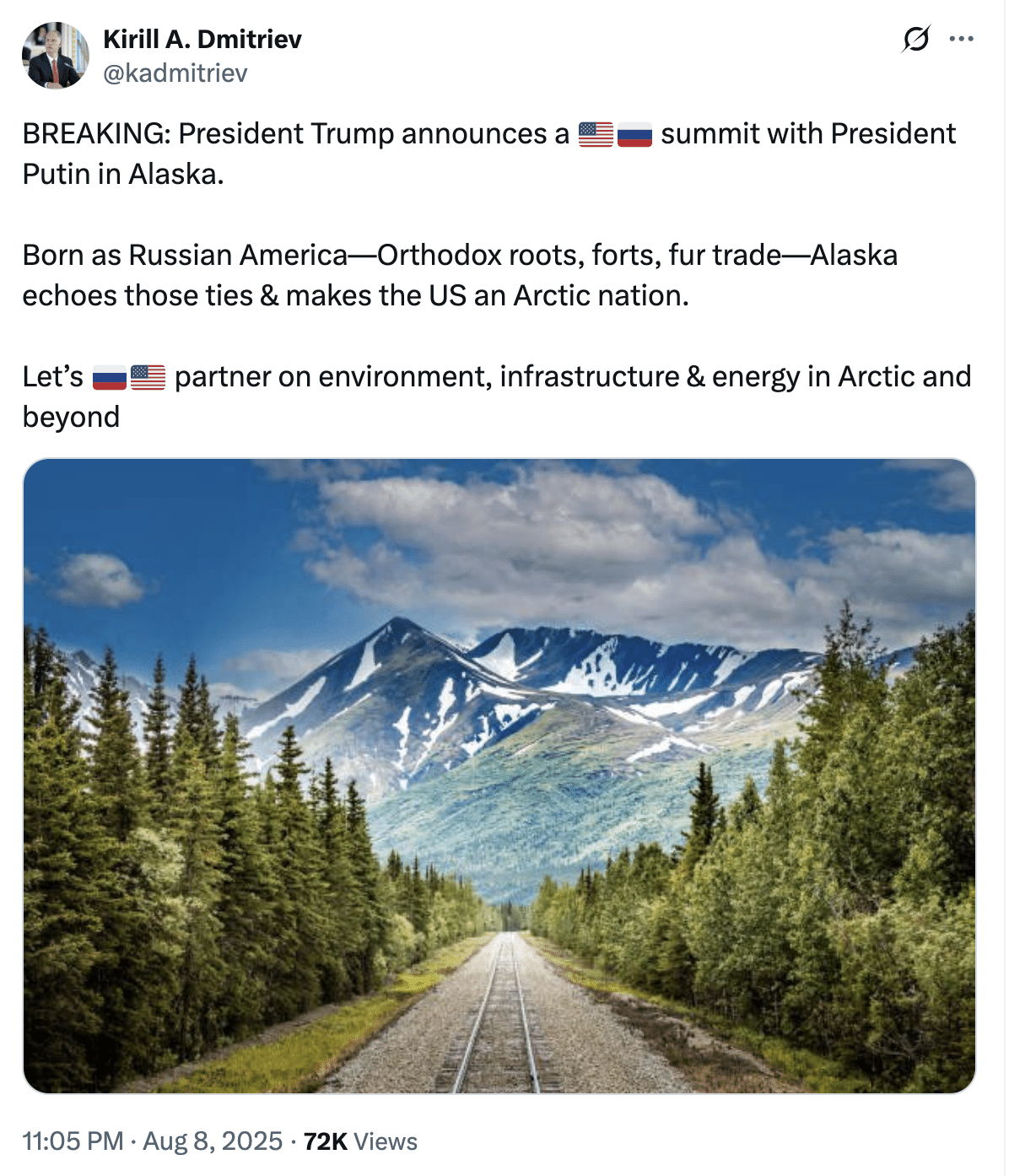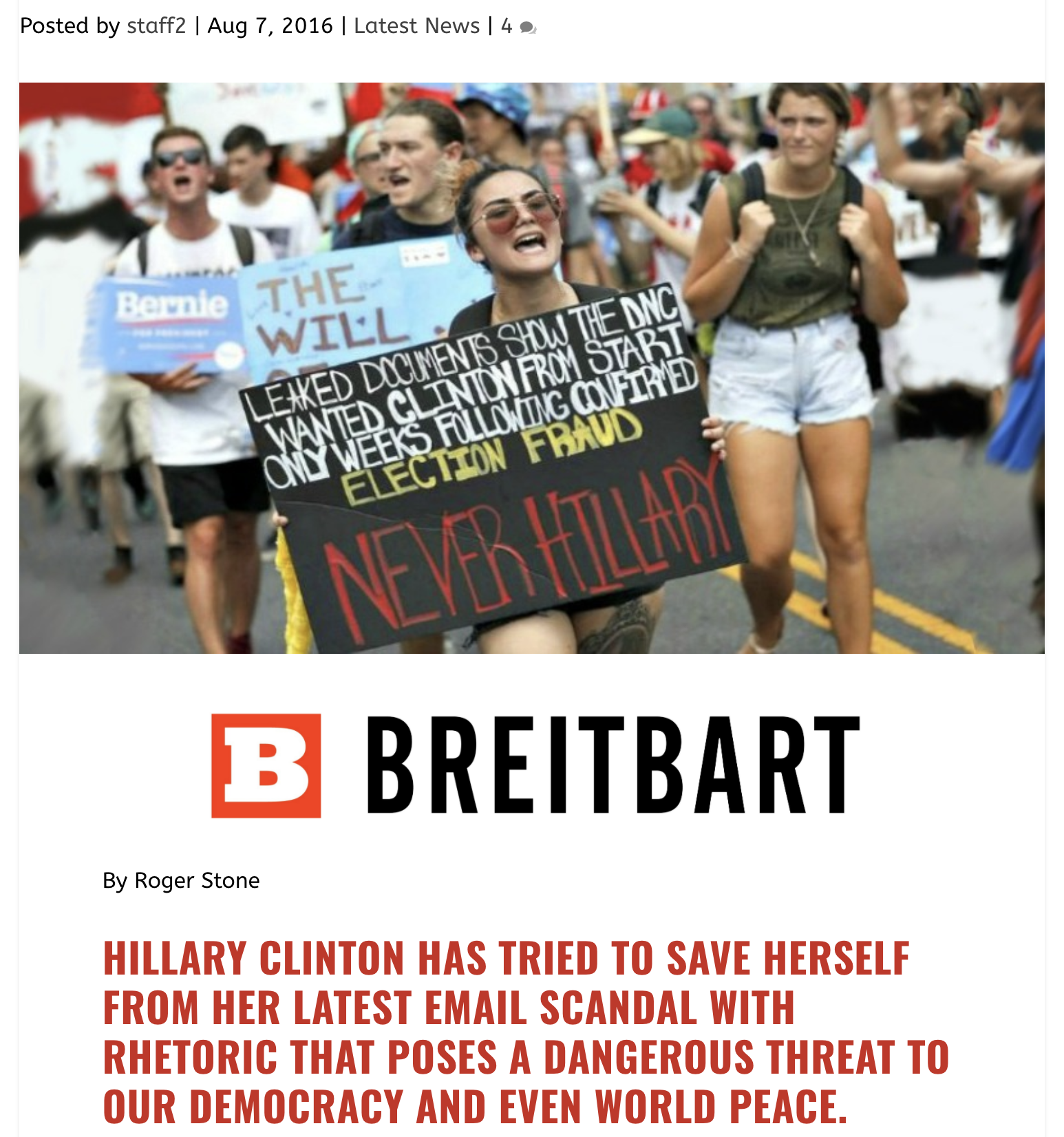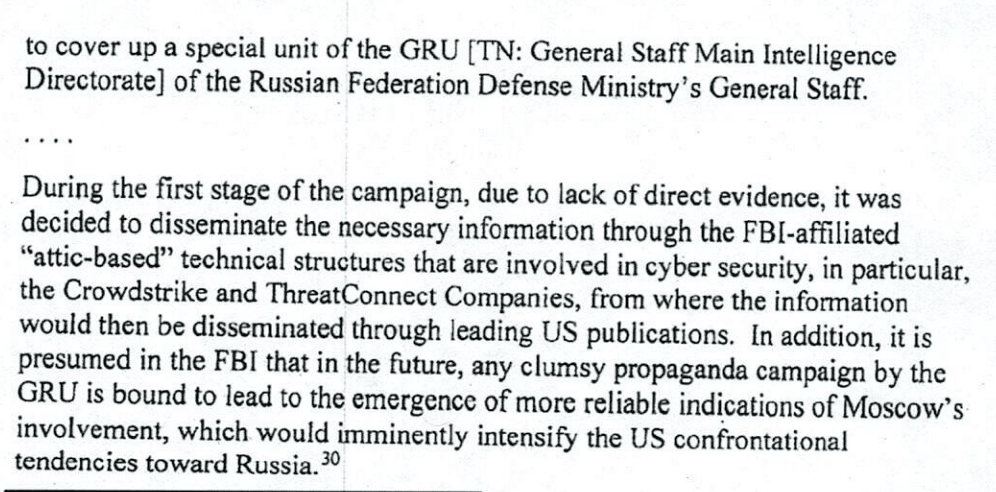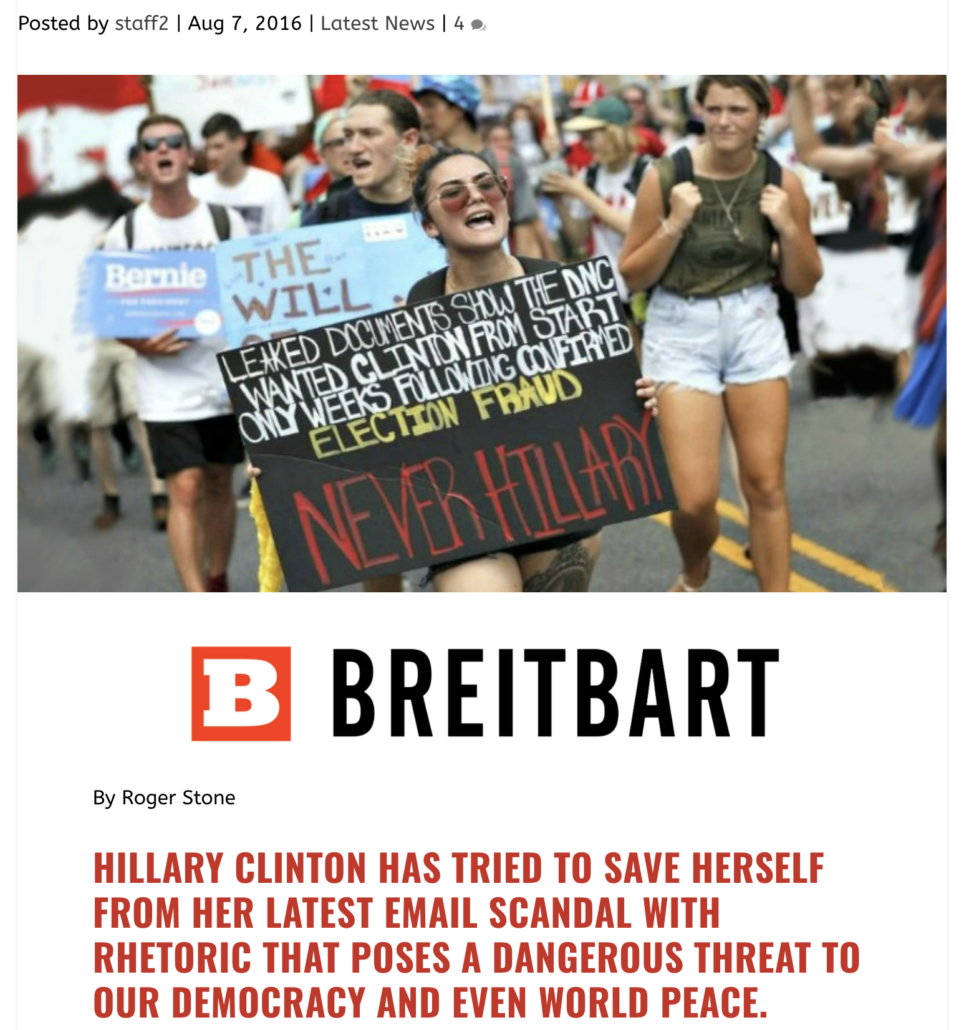If I hadn’t already concluded that the coverage of Trump’s sell-out to Putin on Ukraine adopts the wrong framework, I’d be pissed that Lawrence Freedman stole my intended title, “Baked Alaska,” for this column. Freedman’s is the best analysis of Trump’s “deal” using a traditional diplomatic framework. Freedman argues that Trump has accepted this deal out of wishful thinking.
Donald Trump continues to pursue a peace deal between Russia and Ukraine despite the accumulating evidence that there is no deal to be had. He has acknowledged, after many fruitless phone calls, that Putin has been stringing him along, even accusing him of peddling ‘bullshit’. In an interview with the BBC, he acknowledged
‘We’ll have a great conversation. I’ll say: “That’s good, I’ll think we’re close to getting it done,” and then he’ll knock down a building in Kyiv.’
He observed of Putin that ‘I’m disappointed in him, but I’m not done with him.’
And so like Charlie Brown, shocked each time Lucy pulls the ball away as he is about to kick it, Trump allows wishful thinking to triumph over experience. He clings to the belief that a direct conversation with the Russian leader is the key to unlocking the whole process. As he insisted two months ago, ’Look, nothing is going to happen until Putin and I get together.’
Freedman links to but doesn’t dwell on the implications of this BILD report: as the clock was ticking down on Trump’s imaginary deadline for Putin to stop fighting, Trump offered up sanctions relief and territorial concessions, but Putin refused.
“Vladimir Putin still wants full control over the Donetsk, Luhansk, Zaporizhzhia, and Kherson regions. He only offered a partial ceasefire – a refusal to attack energy facilities and large cities in the rear. But not a comprehensive ceasefire,” a BILD source stated.
The publication emphasizes that the US, on the contrary, proposed freezing the war along the current front line in exchange for a broad lifting of sanctions and new economic agreements with Russia. According to BILD, the Kremlin was unwilling to accept this proposal.
Even after offering Russia most of what it needs to keep fighting and getting rejected, Trump claimed he might still get concessions out of Putin.
And while that does confirm Freedman’s conclusion — that Trump will be embarrassed — I think imposing a diplomatic lens on this negotiation is as ridiculous, at this point, as it would be to impose an economic lens on Trump’s tariff deals. These deals are not about outcomes — improving the economy or saving Ukrainians’ (much less Palestinians’) lives.
They’re about about Trump’s need to feel powerful, his need to coerce tribute. And he’s willing to destroy America in that pursuit.
Coverage since Freedman’s column has begun to inch closer to that, such as this tidbit in ¶6 of a WSJ article describing that a Trump Tower deal for Trump is back on the table.
Alexander Yakovenko, a former ambassador who headed Russia’s foreign-service academy until last year, wrote in an op-ed for the state RIA news agency that “settling the war in Ukraine, which has been lost by the West a long time ago, has become a secondary issue in relations between the United States and Russia—nothing more than an obstacle to normalization that we must overcome together.”
Ever since the summit was announced, Russian media has been replete with stories about special U.S. envoy Steve Witkoff and Dmitriev sharing fried dumplings at a restaurant in the Russian capital, and about the site of a future Moscow hotel, described as a possible Trump Tower Moscow, that the two men visited last week.
A decade ago, this impossibly lucrative Trump Tower deal was going to be worth $300 million. Since then, of course, Trump has turned Trump Tower deals — in Oman, Dubai, Hanoi, Jeddah — into an expanding currency. Back in office now with a pliant Attorney General and immunity for official acts, every deal Trump makes has a side hustle: “free” flying bribery palaces that will cost taxpayers $1 billion, golden shares to destroy a healthy union, 15% to deal critical technology to China. And that’s before you consider the crypto, including the two separate hundred million dollar investments from Chinese linked businessmen, one of whom got a fraud case dismissed. (Er … perhaps the Nvidia approval, to say nothing of the neverending delays in slapping tariffs on China, are not so separate.) His $4.5 billion crypto profit since returning to office may depend on another corrupt pardon.
You cannot assess Trump’s tariff deals in terms of the economic logic because there is none. They are destroying entire US industries by giving foreign companies a competitive advantage.
Similarly, you cannot assess Trump’s upcoming capitulation to Putin in diplomatic terms, because there is none.
This is about Trump.
And I don’t think you can assess how Friday will go without reviewing where we are.
Vladimir Putin helped Trump get elected in 2016 because, according to a piece of intelligence released by Tulsi Gabbard and John Ratcliffe, he was “counting on” a Trump win. During the election, Russia floated that impossibly lucrative Trump Tower deal. Shortly thereafter, the Agalarovs dangled dirt on Hillary for sanctions relief from Don Jr. And then, just over nine years ago, they had a meeting with Trump’s campaign manager (he had come from a meeting with Trump and Rudy Giuliani) where they discussed how Manafort planned to win the swing states, how to get Manafort paid millions …
And a plan to carve up Ukraine.
A plan not all that different from this plan to carve up Ukraine. Trump seemed all in and even was discussing business deals with the same guy that his latest flunkie, Steve Witkoff, is shopping Trump Tower sites with now.
Trump was gung ho to deliver that deal until his National Security Adviser, on a phone that Russians undoubtedly knew was tapped, assured Sergey Kislyak that “boss is aware” of Flynn’s own efforts to undercut sanctions punishing Russia for helping Trump get elected. And that resulted in a criminal investigation that disrupted those plans.
Trump has complained for nine years that Democrats ruined his presidential term because of that investigation, but really, it was his National Security Adviser’s shitty OpSec, even worse than Mike Waltz’ all these years later.
And as a result, Trump and the Russians have spent nine years trying to bury that past in false stories. In one of the first meetings between Trump and Putin, they crafted a cover story for the Aras Agalarov dangle together, outside the hearing of an American translator. At their Helsinki meeting, Trump famously sided with Putin’s spies over his own.
My people came to me, Dan Coates, came to me and some others they said they think it’s Russia. I have President Putin. He just said it’s not Russia.
I will say this: I don’t see any reason why it would be. But I really do want to see the server but I have, I have confidence in both parties.
[snip]
I have great confidence in my intelligence people but I will tell you that President Putin was extremely strong and powerful in his denial today and what he did is an incredible offer.
He offered to have the people working on the case come and work with their investigators, with respect to the 12 people. I think that’s an incredible offer. Ok? Thank you.
Putin joked that, “I’d like to add something to this. After all, I was an intelligence officer myself and I do know how dossiers are made up.” It was about that time when right wingers averted their gaze from Oleg Deripaska’s likely role in the dossier, which enabled Trump to keep claiming that the dossier — which appears to be the result of Russians fucking Hillary over for her poor choice in a subcontractor her team barely interacted with — was the source of his woes and not his own actions.
Around that same time, we now know, Trump started chasing more Russian disinformation, the attempt to frame Hillary that Russian spies invented the day after the investigation into the Russian hack was publicly announced. Trump started adopting that Russian disinformation as the founding myth of his MAGAt tribe. That’s what Bill Barr used, successfully, to bury the damning results of the Mueller investigation. And Trump’s hunt for disinformation is what elicited his attempt to corrupt the newly elected President of Ukraine, Volodymyr Zelenskyy, in 2019. “I would like you to do us a favor though because our country has been through a lot and Ukraine knows a lot about it, ” Trump started his extortion attempt, before turning, less than 30 words later, to his claim that Ukraine, not the FBI, had the server Russia hacked: “The server, they say Ukraine has it.” And Trump kept chasing that disinformation, pushing Rudy to team up with Andrii Derkach and others in search of Hunter Biden’s laptop.
At this point, every single claim on which Trump builds his own legitimacy, according to the terms he himself measures it, is built on Russian disinformation. And that means every single claim is built on degrading rule of law in the United States. Every single claim is built on ever deeper swamps of corruption.
And after he won again — with some overt Russian disinformation and who knows what kind of help from bomb threats originating in Russia — Russia made clear they plan to collect. One of Putin’s closest allies, Nikolay Patrushev stated, truthfully, that Trump had relied on certain forces to get elected, to claim legitimacy.
In his future policies, including those on the Russian track US President-elect Donald Trump will rely on the commitments to the forces that brought him to power, rather than on election pledges, Russian presidential aide Nikolay Patrushev told the daily Kommersant in an interview.
“The election campaign is over,” Patrushev noted. “To achieve success in the election, Donald Trump relied on certain forces to which he has corresponding obligations. As a responsible person, he will be obliged to fulfill them.”
He agreed that Trump, when he was still a candidate, “made many statements critical of the destructive foreign and domestic policies pursued by the current administration.”
“But very often election pledges in the United States can [d]iverge from subsequent actions,” he recalled.
Republican Donald Trump outperformed the candidate from the ruling Democratic Party, Vice President Kamala Harris, in the US elections held on November 5. Trump will take office on January 20, 2025. During the election campaign Trump mentioned his peace-oriented, pragmatic intentions, including in relations with Russia.
“He will be obligated to fulfill them.”
The mistake, in analyzing the Alaska meeting is not just about Ukraine.
It’s about the United States.
It’s not just that Putin can bide his time in Ukraine.
It’s that the longer he holds out, the greater his true objective — turning Trump into his puppet and the United States into a dying kleptocracy that is child’s play to manipulate — comes into grasp.
Putin may still be fighting in Ukraine. But he has achieved far more than he probably hoped for in the US. He has all but defeated every nuisance the Main Enemy once stood for: rule of law, free trade, freedom of speech, science, human rights, reason.
It’s not just that Trump is welcoming a dictator on US soil. It’s that the dictator is coming to reclaim what Russia owns.
Update: This paywalled Telegraph piece says Trump is discussing cooperation on mineral resources in both Eastern Ukraine and Alaska, with an end to sanctions on parts and planes.
Update: OFAC has just cleared a sanction license for the meeting, meaning sanctioned people — like Oleg Deripaska — could attend.


